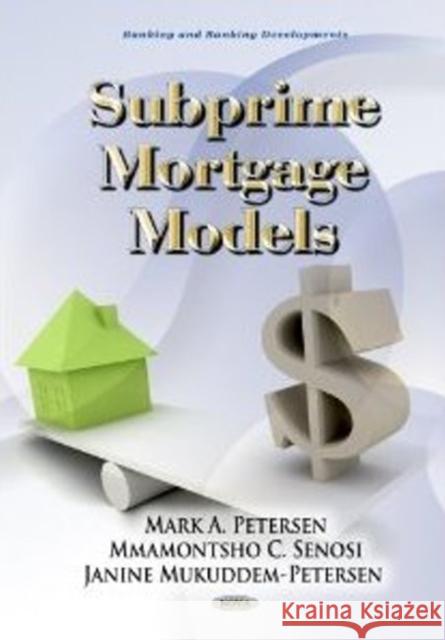Subprime Banking Models » książka
Subprime Banking Models
ISBN-13: 9781617286940 / Angielski / Twarda / 2011 / 280 str.
The subprime mortgage and financial crisis has shaken the foundations of the financial industry by causing the failure of many iconic Wall Street investment banks and several prominent depository institutions. This crisis has stymied credit extension to households and businesses thus creating credit crunches and, ultimately, a global recession. This text describes some of the most important aspects of the subprime mortgage crisis (SMC) such as residential mortgage loan (RML) extension, RML securitisation, subprime risks, bank bailouts as well as Basel capital regulation in a stochastic dynamic setting. In particular, the SMC has highlighted the fact that funding sources, credit risk, profit and valuation as well as capital are important financial economic factors. The main hypothesis of the book is that the SMC was primarily caused by design and complexity issues associated with subprime RML lending and securitisation that, in turn, led to the loss of information and subprime risk opaqueness. The text also contains appropriate examples, discussions, timelines as well as appendices about the main results on the aforementioned topics. Numerous references point to the material not covered in the book, and indicate some avenues for further research. A working knowledge of discrete-time stochastic modelling and optimisation is required in order to understand the key results. This text is one of the first to approach the SMC from a theoretical - rather than a numerical-quantitative viewpoint and is mainly intended for financial industry role players, researchers as well as university students and staff.











